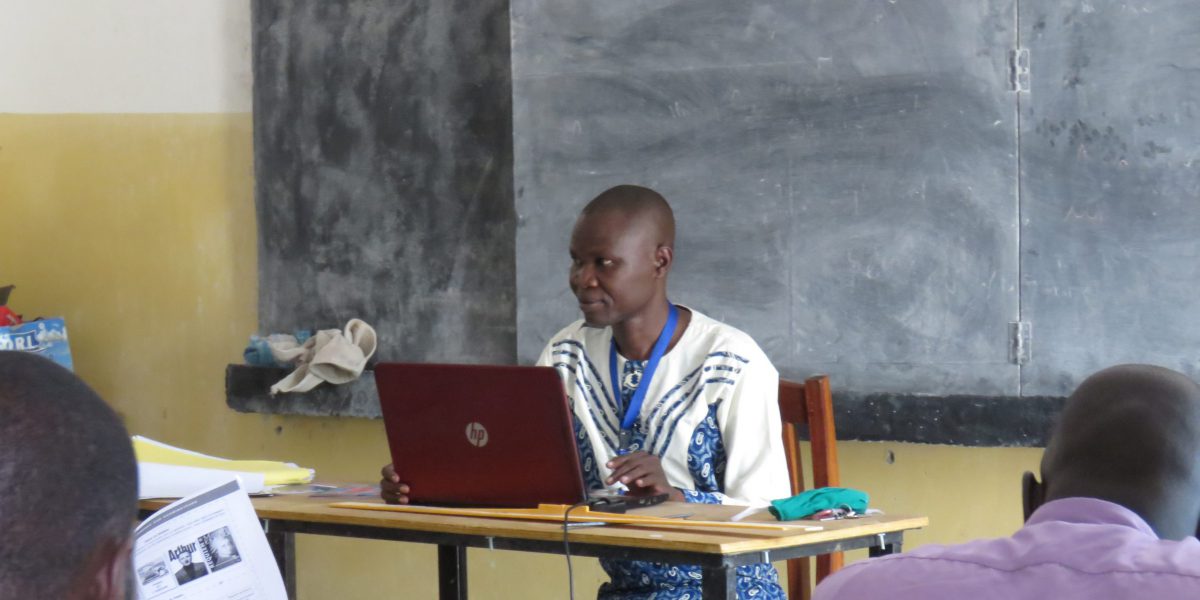Chad: JRS French Teachers Among Top Five Winners at IFprofs 2020 Competition
21 September 2020

Four French as a Foreign Language (FLE) teachers working with Jesuit Refugee Service in various refugee camps in Eastern Chad were among the top five winners at the national Pedagogic Sheets IFprofs Competition this year.
While the contest is organized by the French Language Learning Centres in Chad and open to all FLE trainers, learning the local language is a basic step to integrate into a new community.
The dedication of language teachers is crucial to encourage students to be self-reliable.
Among the JRS FLE teachers, Asseid Ndiguimbaye Allafi, based in Guerda, was awarded first place. followed by Urbain Mbairamadji Nadjiadoum who teaches in Goz Beida and won second place. Ousmane Kola Amane, the new FLE Supervisor in Irba, won fourth place. Following Amane, Thierry Minguengar, an FLE Supervisor in HadjerHidid came in fifth place.
The JRS FLE program, which began in Djabal, Mile, and Kounoungou in 2017, is run in eleven refugee camps across Chad. In the 2019-2020 academic year, 2,364 local and refugee students inscribed to training which was adapted to the national FLE curriculum and funded by the U.S. State Department’s Bureau of Population, Refugees, and Migration (BPRM).
“For the refugees, learning the language is a durable solution towards social and professional integration,” Allafi says “[and] is also important for accessing University.”
With the IFProf prize, he will participate in a two-weeks FLE training in France.
Beyond education, another objective of the program is to create bonds between the refugee and host communities. “To learn a language is to learn about another culture, and my work as a teacher is to build bridges between cultures,”Allafi he says.
“I chose texts focused on equality between women and men, [and] women’s empowerment…” FLE Supervisor, Ousmane says “With this strategy, women in class have started to ask for permission to speak in class, something that they didn’t do before.”
“[JRS FLE program] is an ideal assistance to help refugees walk the path of resilience,” says Urbain.
He also received the chance to take part in a FLE online training course. In his pedagogic sheet proposition, he focused on health and clinical vocabulary, to ease the language barriers refugees encounter in medical centres when trying to access healthcare services.
“My students, including young mothers, have such a strong desire to learn this language, which is foreign to them, despite the many challenges they face every day,” FLE Supervisor, Thierry says.
“They made me discover the other element of my work that was hidden from me until then: humanism.”



